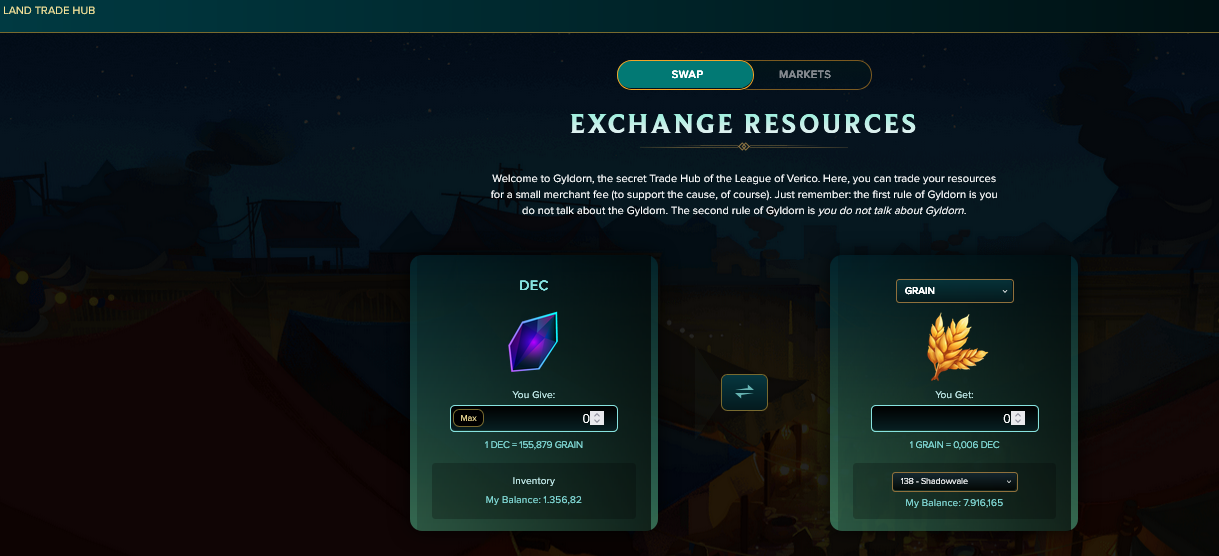Daily Pulse: Global Insights
Your daily source for news and insightful information from around the globe.
Gamer’s Bazaar: The Hidden Market of Player-Driven Item Swaps
Discover Gamer’s Bazaar, where players trade rare items and uncover hidden gems! Join the ultimate player-driven swap market today!
Understanding the Player-Driven Economy: How Item Swaps Shape the Gaming Experience
The concept of a player-driven economy in gaming centers around the idea that players actively participate in the game's economic system by trading, selling, and utilizing in-game items. Unlike traditional systems where developers control item availability and pricing, player-driven economies empower gamers to set the market dynamics. This shift not only enhances engagement but also creates a unique gaming experience where players can influence the game's currency through item swaps. Through various platforms, such as auction houses or direct trading, players can negotiate the value of items, fostering a sense of community and collaboration within the game.
In a player-driven economy, item swaps significantly impact gameplay and strategy. Players often exchange items to optimize their gameplay experience, trade rare and valuable resources, or acquire specific gear necessary for quests and challenges. This interaction leads to a vibrant marketplace where players must stay informed about item values, trends, and the rarity of in-game assets, creating layers of strategy and economic acumen. As a result, understanding the intricacies of this economy not only enhances enjoyment but also allows players to take control of their gaming journey in an evolving and dynamic environment.

Counter-Strike is a highly popular first-person shooter game that has captivated players around the world. With its strategic gameplay and competitive nature, it has become a staple in the esports community. For those looking to enhance their gaming experience, don't forget to check out the daddyskins promo code for some awesome in-game rewards!
Top 5 Tips for Successfully Navigating Gamer's Bazaar: Making the Most of Item Swaps
Attending the Gamer's Bazaar can be an exhilarating experience, especially when you're looking to enhance your gaming collection through item swaps. To successfully navigate this bustling event, it's crucial to prepare in advance. Make a list of items you wish to swap and research their current value in the market to ensure you’re not shortchanged. Additionally, familiarize yourself with popular games and trends to understand what items will be most desirable to your trading partners. This knowledge not only boosts your confidence but also helps you to engage effectively with other gamers.
Another key tip for successful item swapping at the Gamer's Bazaar is to network strategically. Make connections with other gamers to foster potential deals. Attend panel discussions or gaming workshops during the event; these environments often facilitate conversations about item swaps. When discussing trades, be clear and transparent about the items you have and what you're looking for in return. Remember that respect and fairness go a long way in building a positive trading reputation, which can lead to more successful exchanges in the future.
Is Item Swapping the Future of Gaming? Exploring Trends and Predictions
The concept of item swapping in gaming has gained significant traction in recent years, thanks to the rise of online multiplayer platforms and player-driven economies. Many gamers are now engaging in item swapping to enhance their gameplay experience, fostering a sense of community while maximizing their in-game assets. This trend is particularly prevalent in massively multiplayer online games (MMOs), where players can trade items, skins, and rare collectibles, often leading to unique in-game experiences and personal customization. As more titles adopt this feature, it raises the question: could item swapping be the defining gameplay mechanic of the future?
Looking ahead, analysts predict that the popularity of item swapping will only continue to grow. Innovations such as blockchain technology could facilitate secure and transparent item exchanges, making gamers more willing to participate in swapping transactions. Moreover, with the increasing influence of user-generated content and decentralized game economies, developers might find ways to integrate item swapping into their monetization strategies. As we observe these developments, one thing is clear: item swapping could very well be a cornerstone in the future landscape of gaming, reshaping how players interact and trade within virtual worlds.